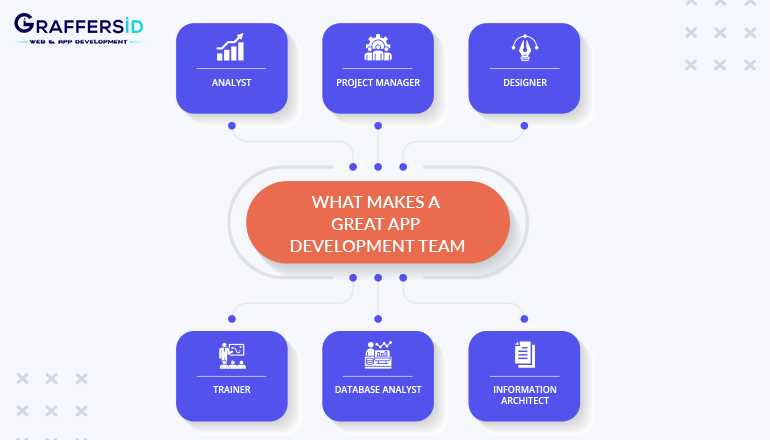Set Up an Offshore Team in India has become the most popular way of outsourcing software development. Offshore development means having a dedicated in-house team at a cost that favors your pocket.
Offshore development has become a favored approach for established businesses as well as startups to maintain, implement, and improve software products for the benefit of their business. A dedicated offshore development company leverages the business by implementing flexibility, cost benefits, and knowledge concentration for your business.
The offshore development acts as an extended team that works at an overlapping shift. They follow the company’s culture when you train them as per your needs. When you hire an offshore developer or team make sure that they are knowledgeable and ensure quality results. Hiring an offshore development team means having an efficient team with outstanding working talent.
You don’t have to spend extra resources on them. Moreover, with the offshore development team, you not only get developers but many types of specialists. Whether it is project managers, graphic designers, or content writers, every role is important.

Must Need App Development Team
Here are a few roles that are expected to perform:
1. Designers and Developers:
Designers and developers hold the responsibility of planning, drafting designs, developing software, website or app, testing, and maintenance.
2. Accounts Manager:
Works with company clients and grants them loyalty. Account manager work is to make sure that clients are satisfied with the work of the company.
3. Project Coordinator:
The project Manager or Coordinator is the one who prioritizes the task of managing offshore development and control communication. Your PM ( Project Manager) is responsible for building the development plan, grouping up the team, and making sure there is timely delivery of the project.
4. Tester/Quality Analyst:
The tester or Quality Analyst keeps a check on the quality and integrity of the project.
5. Content Writer:
To deal with the content creation of an application or website.
6. Usability Engineer:
Before the release of the product, it is the responsibility of the usability engineer to evaluate the user-friendliness of the application or website.
Read Also: 5 Ways to Find and Hire the App Developer
Why do you need an offshore development center?
The offshore development center is always good to be established in an affordable country rather than maintaining an in-house team. India is one of those countries with a low cost of living, which makes India one of the widely preferred countries for setting up offshore development.

According to the recent report by AT Kearney, India is the first country based on skills, finance, and developer availability.
7.707: India
6.32: China
6.11: Malaysia
5.99: Indonesia
By launching your offshore development in India, you can reduce the company’s workload and get more time to focus on the core business objective. If you are not convinced to outsource your software development projects to India know more about
So, all set to launch your offshore development in India? The process of looking for a right offshore partner is way easier than hiring an in-house team. Here are a few steps to follow will set up an offshore development team:
1. Setup your Business Goal:
Have a crystal clear idea of what projects you would like to outsource, if not the entire project what specific tasks you are looking to unburden. First and the foremost thing is to define whether you want to develop a project from scratch, or just want to outsource part of it. There are also chances that you simply require a Python developer and looking forward to hiring a dedicated Python developer from the offshore development company.
2. Non-disclosure Agreement
Compile a strict policy norm that has a non-disclosure agreement. Mention the details and a clause on the details which you seem to be most important and should not be disclosed to a 3rd party. Both you and the offshore team should have a clear understanding of the agreement before duly signing it.
3. Provide Detailed Specification
Before putting pen to paper make sure to provide the remote developers with complete specifications with set deadlines. Try to be as thorough as possible and always leave some scope for them to improvise and be creative.
Communication and transparency are important pillars that support offshore development. Make sure your team is providing you with the call upon requests and sprint reports whenever needed. There are tools like Jira and Trello that can be used for maintaining communication with your offshore development team.
4. Follow Up
Set aside a particular checklist and parameters that will best describe the progress of your project weekly and monthly. Follow-up doesn’t mean providing negative feedback, it also includes reinforcing good performance. With follow-up, it becomes easy to find out what’s happening. The priorities are getting fulfilled or not and removing obstacles if there are any.
There are online tools such as Freedcamp through which you can track daily tasks. Review the progress and don’t hesitate to give your feedback on changes you would like to see.
For an in-depth understanding of considerations and challenges while setting up an offshore development team.
Steps involved in setting up an offshore development team in India?
Setting up an offshore development team in India involves several important steps to ensure a smooth and successful integration of the remote team into your organization’s workflow. Here’s a comprehensive guide to help you navigate the process:
-
Define Project Scope and Requirements: Clearly define your project’s scope, goals, and technical requirements. Determine the skill sets and roles you need within your offshore team.
-
Choose the Right Location: India has multiple tech hubs like Indore, Bangalore, Hyderabad, Pune, and Chennai. Research these locations to find the one that best matches your project’s needs.
-
Select a Reliable Partner: Consider partnering with an established offshore service provider or setting up your own subsidiary. Research the market, read reviews, and evaluate potential partners’ reputations and track records.
-
Legal and Regulatory Considerations: Understand the legal and regulatory requirements for establishing an offshore team in India. This might include company registration, taxation, employment laws, intellectual property rights, etc.
-
Create a Business Plan: Develop a comprehensive business plan that outlines your goals, budget, timeline, staffing requirements, and expected outcomes.
-
Build the Team: Recruit skilled professionals based on the roles and skills you defined in Step 1. Conduct interviews, technical assessments, and reference checks to ensure you’re hiring the right talent.
-
Set Up Infrastructure: Establish the necessary physical and digital infrastructure, including office space, computers, software, communication tools, security protocols, and network connectivity.
-
Cultural and Time Zone Considerations: Understand the cultural nuances and time zone differences between your home country and India. Adapt your communication and collaboration methods to accommodate these differences.
-
Onboarding and Training: Provide a comprehensive onboarding process that introduces the offshore team to your company’s culture, policies, project details, tools, and processes. Provide any necessary training to get them up to speed.
-
Communication and Collaboration: Implement effective communication and collaboration tools to bridge the geographical gap. Regular video conferences, chat platforms, project management tools, and version control systems are essential.
-
Define Roles and Responsibilities: Clearly define roles, responsibilities, and reporting structures within the offshore team. This ensures everyone knows their tasks and who to communicate with.
-
Project Management: Set up project management processes that allow for effective tracking of progress, milestones, and deadlines. Regularly review and assess project status.
-
Regular Performance Reviews: Implement a performance review process that provides feedback to team members. Recognize achievements and address any challenges promptly.
-
Cultural Integration: Foster a sense of unity and collaboration across your onshore and offshore teams. Encourage knowledge sharing, cultural exchange, and team-building activities.
-
Visit and Collaborate In-Person: Periodically visit your offshore team to establish face-to-face relationships, build trust, and strengthen collaboration.
-
Monitor and Adapt: Continuously monitor the team’s performance, address any issues that arise, and be willing to adapt your strategies based on feedback and experience.
Setting up an offshore development team in India requires careful planning, dedication, and effective management. By following these steps, you’ll be better equipped to create a successful and efficient offshore development team that contributes positively to your organization’s goals.
Key Factors For Selecting an Outsourcing Partner for Setting up a Team in India
Selecting an outsourcing partner for setting up a team in India requires careful consideration of several key factors to ensure a successful partnership and project execution. Here are some important factors to consider:
-
Expertise and Experience: Evaluate the outsourcing partner’s expertise and experience in the specific industry and domain relevant to your project. Look for a partner with a proven track record of delivering similar projects successfully.
-
Talent Pool and Skillset: India has a vast pool of skilled professionals. Ensure that the outsourcing partner can provide access to the right talents with the necessary skills and qualifications for your project.
-
Cultural Compatibility: A good cultural fit between your company and the outsourcing partner is essential for effective communication, collaboration, and project alignment. Shared values, communication styles, and work ethics can contribute to a smoother partnership.
-
Communication Skills: Effective communication is critical for remote collaboration. Ensure that the outsourcing partner’s team has strong English language skills to facilitate clear and efficient communication.
-
Infrastructure and Technology: The outsourcing partner should have modern infrastructure, reliable technology, and access to the necessary software tools and equipment required for your project’s success.
-
Data Security and Intellectual Property Protection: Ensure that the outsourcing partner has robust data security measures and a clear intellectual property protection policy in place to safeguard your sensitive information and proprietary technologies.
-
Quality Assurance Processes: Inquire about the partner’s quality assurance processes, including testing, review, and validation procedures to ensure that the deliverables meet the desired quality standards.
-
Project Management and Reporting: A strong project management framework is crucial for tracking progress, managing timelines, and addressing any potential issues promptly. Request information about the partner’s project management practices and reporting frequency.
-
Flexibility and Scalability: Consider the outsourcing partner’s ability to accommodate changes in project scope, requirements, and team size. A flexible partner can better adapt to evolving project needs.
-
References and Client Feedback: Seek references and feedback from other clients who have worked with the outsourcing partner. This can provide valuable insights into their strengths, weaknesses, and overall performance.
-
Legal and Contractual Matters: Review the legal aspects of the partnership, including contracts, terms and conditions, and any potential legal implications of working across international borders.
-
Cost and Budget: While cost savings are often a primary motivation for outsourcing, don’t compromise on quality for the sake of lower costs. Evaluate the cost structure and ensure it aligns with your budget and project requirements.
-
Time Zone and Communication Overlaps: Consider the time zone differences between your location and India. Opt for an outsourcing partner with overlapping working hours for real-time communication and collaboration.
-
Site Visits and Onboarding: Depending on the project’s complexity and importance, it might be beneficial to conduct site visits and onboarding sessions to establish a strong working relationship and ensure a smooth start.
-
Long-Term Partnership Potential: Assess whether the outsourcing partner can be a long-term partner who can grow with your business and adapt to your changing needs over time.
By carefully evaluating these factors, you can make an informed decision when selecting an outsourcing partner for setting up a team in India, ultimately leading to a successful and productive partnership.
Advantages of Setting up an Offshore Development Team in India
Cost-Effective Talent Pool
When it comes to offshore development, one of the foremost advantages of choosing India is its cost-effective talent pool. Indian professionals are known for their technical expertise and proficiency in various programming languages and technologies. What makes them even more appealing is the cost-effectiveness of their services. Hiring developers in India typically comes at a fraction of the cost compared to many Western countries, allowing businesses to allocate their budgets more efficiently.
Quality of Work
While cost savings are a compelling factor, it’s essential to note that Indian offshore development teams do not compromise on quality. Many Indian IT professionals have received education and training from top-notch institutes, and they adhere to international quality standards in their work. Businesses can expect high-quality software development, web design, and other IT services from Indian teams, ensuring that the final product meets or exceeds their expectations.
Harnessing Expertise: A Win-Win
In India, offshore development is not just about cost savings; it’s about harnessing expertise. Indian developers bring a wealth of knowledge and experience to the table, making them valuable assets for businesses aiming to stay at the forefront of technological advancements.
Time Zone Advantage
Collaborating with an offshore development team in India offers a strategic time zone advantage for businesses. India’s time zone allows for significant overlap with the working hours of Western countries, such as the United States and Europe. This synchronicity enables real-time communication and collaboration, reducing project timelines and enhancing productivity.
English Proficiency
Effective communication is the cornerstone of successful offshore development partnerships. India boasts a large pool of English-speaking professionals, making it easier for businesses to convey their requirements and ideas. This language proficiency minimizes the chances of miscommunication, ensuring that projects progress smoothly and efficiently.
Cultural Compatibility
Cultural compatibility is often underestimated but plays a pivotal role in offshore collaborations. India has a culture that emphasizes respect for deadlines, commitment to quality, and adaptability to diverse work cultures. These cultural traits align well with the expectations of businesses seeking offshore development partners.
Bridging Cultural Gaps
By setting up an offshore development team in India, companies can bridge cultural gaps and build strong, collaborative relationships that drive project success.
Government Support
The Indian government has been proactive in supporting the growth of the IT and outsourcing industry. Various incentives, tax benefits, and favorable policies are in place to encourage foreign investment and business partnerships. This government support further sweetens the deal for companies considering offshore development in India.
Scalability
The scalability of offshore development teams is a critical factor for businesses looking to adapt to changing market conditions. In India, companies can easily scale their teams up or down based on project requirements. This flexibility ensures that businesses can remain agile and responsive to evolving needs.
Access to Diverse Skill Sets
India’s diverse talent pool is a significant advantage for businesses seeking specialized skills. Whether it’s AI and machine learning, blockchain development, or mobile app development, you can find experts in a wide range of technologies in India. This diversity enables businesses to tap into niche skill sets that may not be readily available locally.
Technological Advancements
India has consistently invested in technological advancements and infrastructure development. From state-of-the-art software development tools to robust IT infrastructure, businesses setting up offshore teams in India gain access to the latest technology stacks, giving them a competitive edge.
Focus on Core Competencies
By outsourcing development tasks to India, businesses can refocus their internal resources on core competencies and strategic initiatives. This strategic reallocation of resources allows companies to innovate and expand their market reach without being bogged down by routine development tasks.
Data Security Measures
Data security is a top priority for businesses worldwide. Indian IT service providers adhere to stringent data security protocols, ensuring the confidentiality and integrity of sensitive information. These measures give businesses peace of mind when entrusting their projects to Indian offshore teams.
Competitive Edge
In a global market where innovation and efficiency are paramount, setting up an offshore development team in India provides a significant competitive edge. Companies can accelerate product development, reduce time-to-market, and stay ahead of competitors by leveraging the advantages of Indian talent and resources.
Unlock Your Offshore Development Potential with GraffersID!
When it comes to finding a reliable offshore development team, Graffersid is your best bet. With a 95% successful client rate, Graffersid provides its clients with unmatched solutions for their projects. We strive to develop a customer-centric software solution that imparts a unique identity to our clients. Our team of expert web developers comes up with ideas that meet the business needs of our clients impeccably.
Our team of experienced professionals is dedicated to turning your vision into reality, offering top-notch development, design, and digital solutions. Let’s embark on a journey towards innovation and success together. Connect with GraffersID today and elevate your offshore development experience to new heights!








